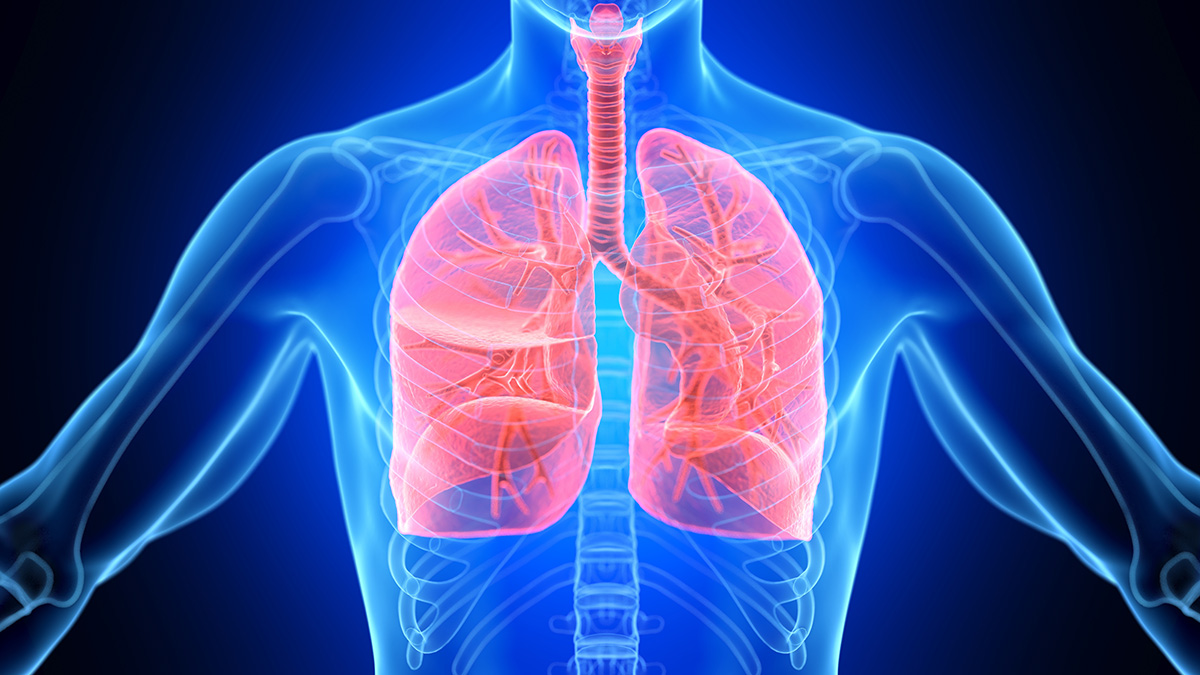
You are here
Press release
Tuesday September 10, 2024
The National Institutes of Health has supported a team of scientists to create a blood test to identify adults at greatest risk of developing serious respiratory diseases, such as chronic obstructive pulmonary disease (COPD).COPD). Scientists determined that the blood test accurately predicts an adult's increased risk of needing medical care or dying from serious respiratory illnesses. The risk score was calculated using lung health data from more than 2,500 U.S. adult participants over a 30-year period. The findings were published by the American Journal of Respiratory and Critical Care Medicine.
The study was funded by the NIH's National Heart, Lung, and Blood Institute. James P. Kiley, PhD, said, "We're not ready to use this test in the clinic yet, but it's a promising step forward." It consolidates decades of medical evaluations and breathing tests into a single tool that has the potential to identify patients at high risk for serious disease and complications.
To create the score, the researchers first looked at lung health data from 2,470 adults ages 18 to 30 who had participated in a 30-year cardiovascular health study. Study. The researchers then selected 32 proteins from thousands of blood samples collected from the participants 25 years ago that were most predictive of rapid lung decline. The 32 proteins were compiled into a score that predicted whether a person was likely to need medical care for serious respiratory illness, or even die.
The higher the score, the more likely an adult was to need hospital treatment for respiratory illnesses, 84 % more likely to develop COPD, and 81 % more likely to die from respiratory illnesses such as COPD. Adults with a higher score were also more likely to experience respiratory symptoms that required treatment, including a sore throat, a cough with mucus, or shortness of breath.
Loss of lung function from year to year has been associated with respiratory problems, but there is no simple way to determine whether a person is in a downward spiral of lung function, said Ravi Kalhan, MD, at Northwestern University Feinberg Medical School in Chicago. If we could use a simple clinical tool like a test to capture the trajectory of a person’s lung function at a given point in time, it would allow us to intervene earlier and ultimately improve lung health.
Participants in this decades-long research had lung function tests done up to six different times during the study and collected other data on lung health. During the study, 2,332 participants saw their lung function decline, which was normal, and 138 experienced rapid decline.
The researchers retrospectively assessed respiratory disease risks for more than 40,000 adult participants from two previous observational studies to test the score. After taking into account several factors such as sex and race, weight, smoking history, asthma and body mass index, the prediction model was able to identify adults at highest risk of serious respiratory disease.
The study was co-authored by Gabrielle Y. Liu, MD, a pulmonologist and assistant professor of medicine at the University of California, Davis Medical Center, Sacramento.
The FDA still needs to conduct clinical trials to determine whether this type of test can be used as a screening tool to predict risk Chronic respiratory disease. The conditions You can also read how to contact us. In 2019, it was the third leading cause of death among adults worldwide. The main risk factors are smoking, air pollution and workplace exposure to lung-irritating chemicals such as fumes and gases.
The National Heart, Lung, and Blood Institute: NHLBI, a global leader, conducts and supports research on heart, blood, lung and sleep diseases that improves public health care and saves lives. Visit the website for more information. https://www.nhlbi.nih.gov.
The National Institutes of Health: The NIH is the medical research agency of the U.S. Department of Health and Human Services. It includes 27 institutes and centers. The NIH, the national medical research agency, is a component of the U.S. Department of Health and Human Services. It is responsible for conducting basic, translational, clinical, and other medical research. Visit the NIH for more information about its programs and services. www.nih.gov.
NIH…Transforming Discovery into Healthcare(r)
You can also study with us
Liu G, Perry A, Washko G, et al. A multicohort analysis of proteomic scoring for increased respiratory susceptibility. Am J Respir Crit Care Med. 2024 ; doi : 10.1164/rccm.202403-0613OC.
###
